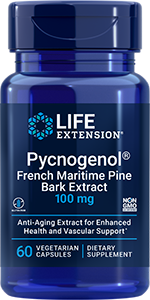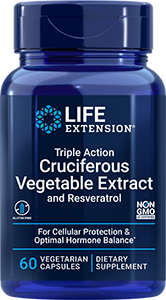Increased lycopene levels associated with lower risk of stroke
Friday, October 12, 2012. The October 9, 2012 issue of the journal Neurology® published the finding of Finnish researchers of a protective effect for the carotenoid lycopene, which occurs in high amounts in tomatoes and other plant foods, against the risk of stroke in middle-aged men.
The study included 1,031 men aged 46 to 65 years participating in the Kuopio Ischaemic Heart Disease Risk Factor cohort. Blood tests conducted upon enrollment between 1991 and 1993 evaluated serum carotenoids, vitamins A and E, and other factors. The subjects were followed through 1999, during which 50 men experienced ischemic stroke (which accounts for 85 percent of all strokes) and 17 men had other types of stroke.
Men who experienced strokes tended to be older and had higher systolic blood pressure, which increases stroke risk. Those whose lycopene levels were among the top 25 percent of participants had a 59 percent lower adjusted risk of ischemic stroke and a 55 percent lower risk of any stroke over follow-up in comparison with men whose lycopene levels were among the lowest fourth. Levels of other nutrients measured did not appear to be associated with stroke risk in this study. According to authors Jouni Karppi, PhD and colleagues, "One possible reason that lycopene might decrease the risk of stroke more than other antioxidants may be the consequence of antioxidant activity. Lycopene is a potent antioxidant and the most effective quencher of singlet oxygen, and it was reported to be more effective than beta-carotene in cell protection against hydrogen peroxide and nitrogen dioxide radicals. Furthermore, different subtypes of stroke have different etiopathologies and thus most likely also have different associations with dietary antioxidants."
"This study adds to the evidence that a diet high in fruits and vegetables is associated with a lower risk of stroke," stated Dr Karppi, who is affiliated with the University of Eastern Finland's Institute of Public Health and Clinical Nutrition. "The results support the recommendation that people get more than five servings of fruits and vegetables a day, which would likely lead to a major reduction in the number of strokes worldwide, according to previous research." |
 |
|
The results of a prospective study presented at the European Society of Cardiology Congress on August 27, 2012 indicate that the adoption of four healthy lifestyle factors can lower the risk of high blood pressure by 67 percent in men and 63 percent in women.
Professor Pekka Jousilahti of Finland's National Institute for Health and Welfare in Helsinki and his associates evaluated data from 9,637 Finnish men and 11,430 women aged 25 to 74 who did not have hypertension at the beginning of the study. Questionnaires provided data on alcohol intake, leisure time physical activity, vegetable consumption and weight. Over an average follow-up period of 16.1 years, high blood pressure developed in 709 men and 890 women.
Subjects who consumed less than 50 grams alcohol per week, engaged in physical activity during their leisure time thrice weekly or more, consumed vegetables on a daily basis and maintained a body mass index of less than 25 kg/m2 had an average risk of developing hypertension that was two thirds less than that of those who had none of these factors. "The risk of hypertension was only one third among those having all four healthy lifestyle factors compared to those having none," Dr Jousilahti stated. "Even having one to three healthy lifestyle factors reduced the risk of hypertension remarkably. For example having two healthy lifestyle factors reduced the risk of hypertension by nearly 50% in men and by more than 30% in women."
"Our study was focused on prevention of hypertension and therefore included subjects who did not have hypertension at baseline," Dr Jousilahti noted. "But the results should apply to the treatment of patients with hypertension, who can reduce their blood pressure by modifying the four lifestyle factors alone, or by making these modifications while taking blood pressure lowering medication." |
|

|
 |
|
Life Extension® Pycnogenol® French Maritime Pine Bark Extract is designed to counteract premature-aging-related changes by providing support for the following mechanisms:
- Membrane function: Pycnogenol® promotes the integrity and normal characteristics of cell membranes.
- DNA function: Pycnogenol® helps support normal DNA function through antioxidant activity and possibly other mechanisms.
- Easing inflammation: Pycnogenol® helps ease inflammation by normal modulation of inflammatory cytokine molecules.
- Oxidative stress: Pycnogenol® supports the normal functioning of healthy antioxidant systems to help suppress free radicals and protect DNA.
- Glycation: Pycnogenol® supports cellular metabolism of sugar, healthy fasting, and post-meal blood sugar levels already within normal range, and normal sugar absorption in the intestine.
|
|
 |
|
Scientists have identified specific extracts from cruciferous vegetables — such as broccoli, cauliflower, cabbage and Brussels sprouts — that help maintain healthy hormone levels. Triple Action Cruciferous Vegetable Extract combines some of these plant extracts into the most comprehensive food-based, plant compilation for cell protection yet.
I3C (indole-3-carbinol) and DIM (di-indolyl-methane) favorably modulate estrogen metabolism and induce liver detoxification enzymes to help neutralize potentially harmful estrogen metabolites and xenoestrogens (potentially toxic, estrogen-like environmental chemicals). Extracts of broccoli, watercress, and rosemary provide glucosinolates, isothiocyanates, carnosic acid, and carnosol — bioactive compounds that have a multitude of favorable effects on estrogen metabolism and cell division. Apigenin, a powerful plant flavonoid, is also added to the formula to boost cell protection, while cabbage extract, a natural source of benzyl isothiocyanate, is included to maintain cell health. |
|
|



